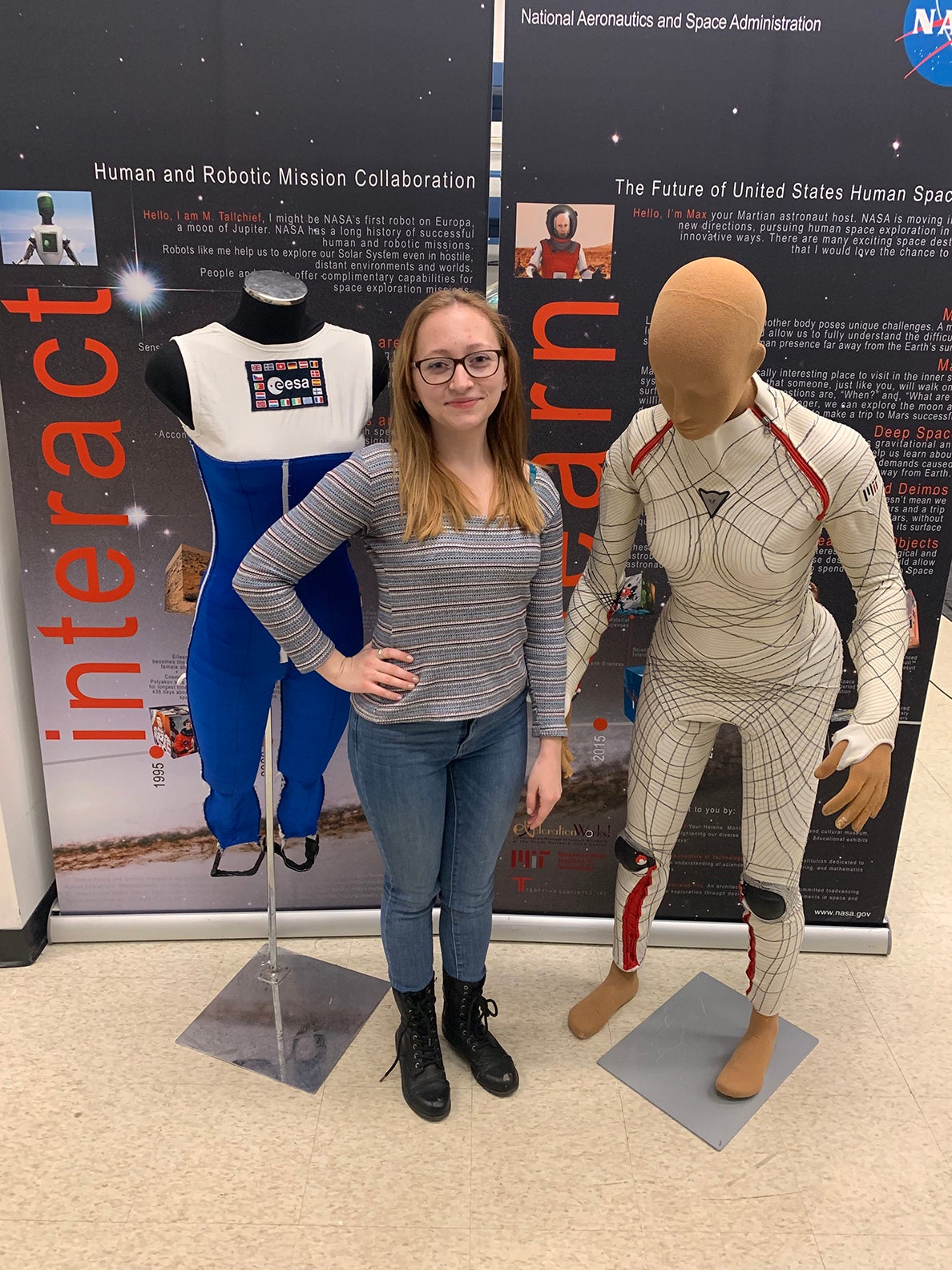KINGSTON, R.I. – April 12, 2019 — Not many people have the opportunity to mingle with astronauts. But when you work in a lab that is dedicated to human spaceflight, such opportunities occur.
Rachel Bellisle, who graduated summa cum laude from the University of Rhode Island’s biomedical engineering program in 2018, is conducting research in bioastronautics at the Massachusetts Institute of Technology (MIT).
While pursuing a doctorate in medical engineering and medical physics through the MIT-Harvard Health Sciences and Technology Program, Bellisle is also working in MIT’s Human Systems Laboratory, located in the university’s Department of Aeronautics and Astronautics.
Bellisle’s most recent lab work has been under the direction of MIT Assistant Professor Leia Stirling.
“Rachel is motivated by space applications and appreciates that the science and engineering that enables people to leave the planet and also has terrestrial applications to solve problems on Earth,” said Stirling.
One of Bellisle’s accomplishments this semester was developing an algorithm that uses inertial measurement units to estimate body posture. The algorithm is now being implemented in three separate projects by the research team in the lab.
This summer, the Exeter native hopes to work on a gravity loading countermeasure suit that prevents bone loss in astronauts in microgravity and potentially has therapeutic applications for individuals with cerebral palsy on Earth.
Bellisle’s faculty research advisor is Dava Newman, who is a former deputy administrator of NASA. Newman’s research areas include spacesuits and space physiology.
MIT’s legacy in spaceflight was on full display at the Apollo 50+50 event, a day-long symposium held on March 13 to commemorate the 50th anniversary of the 1969 moon landing and to envision the next 50 years of human space exploration.
Bellisle attended the event, at which 15 MIT alumni who are active or retired astronauts were present.
“The event emphasized the huge part MIT has played in the history of spaceflight,” Bellisle said. “It was a humbling experience to once again be reminded how lucky I am to be in a place with such a legacy and to be among people who are giants in their field today.”
Bellisle credits her experience at URI with preparing her for her studies at MIT.
“My involvement in the engineering community and professional engineering organizations at URI were vital to developing the ‘soft’ skills I needed to be successful,” stated Bellisle. “I also had the opportunity to attend conferences, which enabled me to make connections for internships, graduate programs and fellowships.”
Bellisle honed her research skills at URI while working in Professor Walter Besio’s Neuro Rehabilitation Lab and Assistant Professor Kunal Mankodiya’s Wearable Biosensing Lab.
“Rachel was one of the brightest biomedical engineering students I’ve had the honor to advise,” said Mankodiya. “She worked diligently on a complex research project that involved body motion capture and brain monitoring. She quickly mastered her research skills.”

